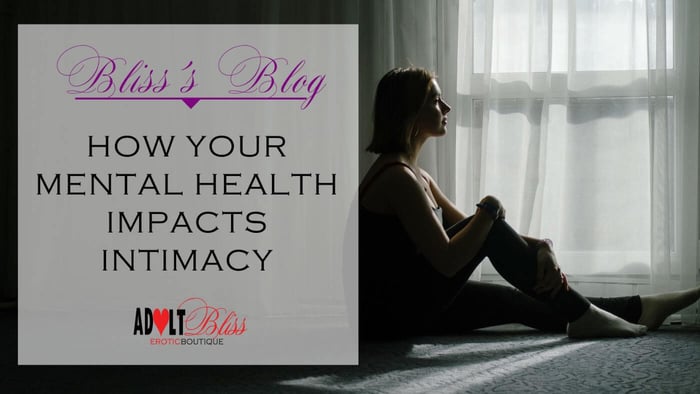
How To Vet Your GP – Finding Help For Sexual Health Advice
Jump To Section
Do You Need to Vet GP For Sexual Health Advice
In previous pieces where I have talked about problems with orgasm, libido and pain associated with intercourse, I have strongly encouraged seeking the advice of a health care professional. General practitioners are usually the best place to start, not only because of their broad knowledge but also because they are the entry point into a lot of specialised services. Talking about sexual health issues can be daunting even if it is someone you are close to, let alone if it is a stranger! In this piece, I will talk about how to vet your GP for help with sexual health issues and some broad advice about engaging with health care professionals.

Be Prepared
It is important to choose someone wisely in the first instance. Picking a GP to see can be a daunting task as you try to balance your personal preferences for the clinician. Considering their gender, where they are located, their fee schedule, their availability and if they are even taking on new clients can limit the options available to you. These basic practicalities of finding the GP to help you with your sexual health issues are an important first step to address. Then you can look at what their specialities are, what they are interested in, what training they have received and what procedures they are able to perform.
Satisfyer Pro 2 Generation 3 Connect App

$129.95
It has finally arrived: A new wave of pleasure is here with the app enabled Satisfyer Pro 2 Generation 3. Featuring our innovative Liquid Air...… read more
Get One NowIts actually gotten a little easier to vet your GP in recent years, Because of the growing competitiveness of the GP market in Australia, most clinics will have in-depth information about their clinicians on their websites, plus you can also find additional information about the clinician on other websites that act as a hub for general practitioner services. The websites/apps you can book appointments through (such as HotDoc and Health Engine) are one such place where information can be found, including independent reviews.
It can help to practice explaining your issue, either out loud yourself or someone you trust. This way, you can work out what and how much you want to share and it can take the pressure off explaining something that could be uncomfortable. Making notes of what you want to talk about, including symptoms with timeframes, is a great preparation tool and can help mitigate forgetfulness that comes with a high stress appointment such as this. In saying this, also make sure you book enough time for your appointment so that you don’t feel rushed. Some GPs will insist on a longer appointment for the first time you see them and for appointments related to sexual health, but this isn’t the same for all. Give yourself all the help you can to ensure the best outcome.
You are probably not going to like this bit…
The fact is you can vet your GP all you want; have a slew of checklists, practice explaining your issue to someone else, know what you are looking for in a general practitioner, amongst a myriad of other strategies. In the end, it really comes down to how you connect to them as an individual. A general practitioner may have rave reviews, a slew of post graduate qualifications and credentials and look perfect on paper, but that doesn’t mean you will connect with them in a positive way.
Consider someone who may not have all the credentials you want if their personality offsets that. If they have a curious and open manner, and are willing to explore your issues in a way which inspires confidence in you, that should win out over any laundry list of training.
You may find that you will need to speak to multiple health professionals about your issue, and as annoying (and distressing) as this can be, it is unfortunately the terrain we are operating in. You may not find the perfect person on your first try, but persistence is key. If your first attempt doesn’t work, do not be discouraged, but try again.

What to do if you have a problem with a GP
Although I have a great deal of understanding when it comes to general practitioners and the challenges they face providing a quality service in the current system, I also know that they are not infallible. Some GPs make mistakes, and some of these mistakes can be due to knowledge gaps, while some can be attributed to their own personal bias encroaching on their professional practice. Either way, if you feel the service you have received from a GP is below expectations, you should always provide feedback.
That feedback can be to the practice itself, or if you feel the situation warrants it, you can make a complaint to AHPRA (the Australian Health Practitioner Regulation Agency). Feedback, particularly if you have had a negative experience, is extremely important for clinicians to improve their practice, and to make services better for all who use them.
Rem Sequence is an Australian adult content creator, blogger, and internationally published alt model. She has a background in psychology, philosophy and political science and worked in health and sex education, youth work and trauma counselling for almost two decades. Now, she works full time in the adult industry, as well as indulging her passion for arts, writing and music in numerous side projects.
FAQs
How can I find the right GP for sexual health concerns?
Start by researching practical factors such as the GP's gender, location, fee schedule, availability, and whether they are accepting new patients. Look into their specialties, training, and procedures they can perform. Many clinics and booking platforms, like HotDoc and Health Engine, provide detailed clinician profiles and reviews, which can help in making an informed decision.
How should I prepare for a GP appointment about sexual health?
Preparation is key. Practice explaining your issue out loud or with someone you trust to determine how much you want to share. Write down your symptoms, timeframes, and key points you want to discuss. Booking a longer appointment can reduce stress and ensure enough time to address your concerns. Remember, some GPs might require extended time for first visits or sexual health issues.
What should I do if I don’t connect well with a GP?
Even a well-reviewed and highly qualified GP may not be the right fit if you don’t feel comfortable with them. Prioritize a GP’s ability to connect with you and their openness to exploring your concerns over credentials. If the first GP isn’t a match, don’t be discouraged—finding the right fit may require trying multiple professionals.
How can I address problems with a GP or their service?
If you feel a GP provided substandard care, provide feedback to the clinic or, if necessary, lodge a complaint with AHPRA (Australian Health Practitioner Regulation Agency). Constructive feedback helps improve services and ensures better experiences for future patients.









